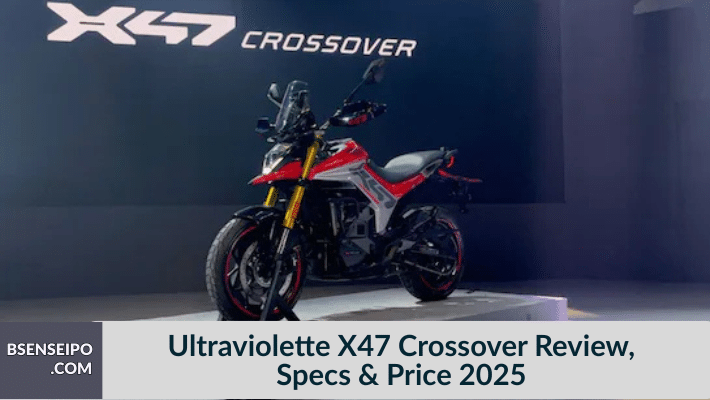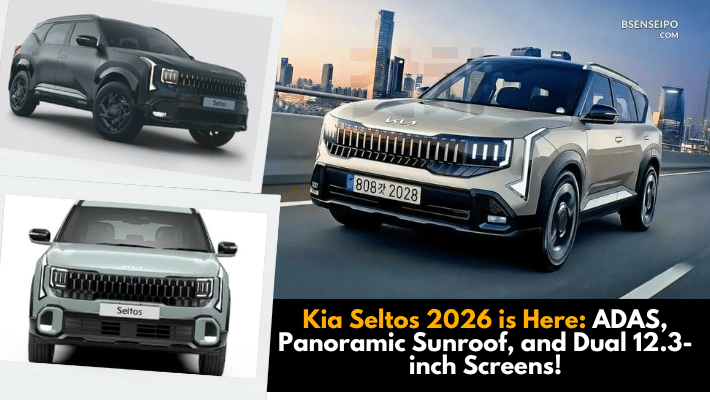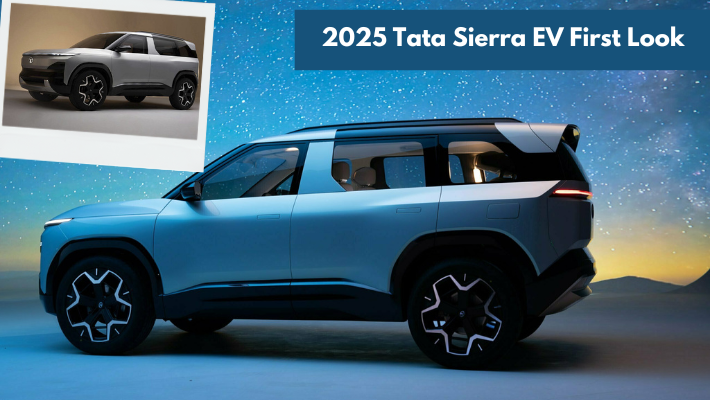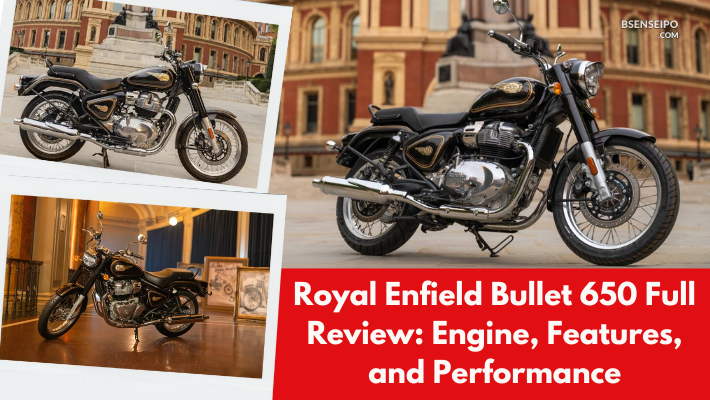Ultraviolette X47 Crossover: India’s Radar-Enabled EV Bike Takes on the Road
In a rapidly evolving Indian electric two-wheeler market, Ultraviolette Automotive continues to push boundaries with technology and performance. Their latest offering, the X47 Crossover, aims to blend street and adventure styles while introducing radar-based safety and advanced features usually reserved for premium motorcycles. Launched in September 2025, the X47 is already generating buzz among EV enthusiasts and early adopters.
This article gives you a comprehensive look at the X47 Crossover — its price and variants, technical specifications, features, real-world analysis, and how it compares against potential rivals.
Ultraviolette X47 Crossover Price, Variants & Range
Price Range & Introductory Offer
- The ex-showroom price for the base 7.1 kWh variant is ₹ 2.74 lakh in Bengaluru.
- For the first 1,000 customers, Ultraviolette offers a special introductory price of ₹ 2.49 lakh (ex-showroom) for that base version. The price for the higher-capacity battery (10.3 kWh) variant is yet to be announced.
As is common, the on-road price will vary by city, accounting for RTO, insurance, and other charges. For instance, BikeWale lists Delhi on-road price around ₹ 2,64,620 for the X47 Crossover.
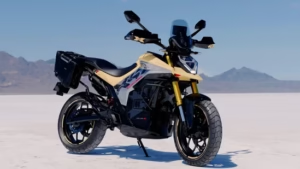
Range/Variants
Ultraviolette offers two main variants differentiated by battery size and resulting range:
| Variant | Battery Capacity | Claimed IDC Range* |
|---|---|---|
| Base | 7.1 kWh | 211 km |
| Extended | 10.3 kWh | 323 km |
* IDC = Indian Drive Cycle (official estimation)
Given real-world riding conditions, actual range may be lower depending on load, terrain, speed, weather, and riding style.
Specifications & Key Features
Here’s a consolidated spec sheet and highlights for the X47 Crossover:
| Component | Specification / Detail |
|---|---|
| Motor / Power | ~ 30 kW (~ 40.2 hp) |
| Torque | 100 Nm at motor, ~610 Nm at wheel (peak) |
| Acceleration | 0–60 km/h in ~2.7 s |
| 0–100 km/h | ~8.1 s (for extended / top-variant) |
| Top Speed | 145 km/h |
| Chassis / Frame | Distinct chassis (not exactly same as F77), cast aluminium subframe |
| Suspension | 41 mm USD front fork; mono-shock rear |
| Brakes | ByBre discs (320 mm front, 230 mm rear), dual-channel ABS switchable |
| Ground Clearance | ~ 208 mm |
| Weight | Around 207 kg for the higher battery variant (heavier by ~11 kg over base) |
| Safety & Rider Assistance | Radar system (UV Hypersense) 77 GHz monitoring up to 200 m; blind-spot monitoring, lane change assist, rear collision warning, overtake alert |
| Dashcam / Cameras | Dual integrated front + rear 1080p cameras, separate display for camera feed; 32 GB storage standard (expandable) |
| Displays / Connectivity | Primary TFT display plus secondary display for ADAS feed, over-the-air updates, connectivity via eSIM, ride stats etc. |
| Charging | Onboard charger (1.6 kW air-cooled) for AC charging; claims of fast charging / parallel boost (details still emerging) |
| Warranty / Support | Up to 8,00,000 km claimed warranty coverage |
Feature Highlights & Innovations
- Radar Intelligence (UV Hypersense): One of the first in its price / segment to offer radar-based sensing standard.
- Integrated Dashcam & Camera Displays: Captures front/rear video and shows feed in real time.
- Multiple Ride / Safety Modes: Traction control (3 levels), regen braking (9 levels), dynamic stability control etc.
- Design & Crossover Styling: Combines “adventure / tourer + street” aesthetics — beak fenders, raised handlebars, cast aluminium subframe, modular attachments (panniers etc).
Review & Critical Analysis
What Works Well
- Cutting-Edge Tech in the Segment
Radar-based ADAS features (blind spot, lane assist, rear collision warnings) are rare even among premium motorcycles in India. Having this in a crossover EV gives it a strong differentiator. - Strong Performance Figures
The acceleration (0–60 km/h in ~2.7 s) and top speed 145 km/h are competitive among EV bikes, particularly for mixed urban-highway use. - Good Claimed Range with the 10.3 kWh Variant
323 km IDC is attractive for doing longer rides without constant charging anxiety (assuming real-world performance is not too far off). - Feature-Rich Experience
Dual cameras, display feeds, connectivity, OTA updates — these features enhance usability and appeal. - Stylish Design for a Crossover
Balancing aggressive yet versatile styling, the X47 may appeal to younger buyers who want both utility and statement.
Potential Pitfalls & Considerations
- Real-World Range vs Claimed
As with all EVs, the claimed figures may not hold under real conditions — heavier loads, inclines, speeds, temperature, etc. - Weight & Handling Tradeoffs
The heavier battery / kit plus technology bits may push GVW; agility off-road or sharp trails may be constrained. - Charging Speed & Infrastructure
Although the bike has a 1.6 kW onboard charger, fast charging / DC charging specs are not fully disclosed. In India, lack of ubiquitous charging infrastructure remains a challenge. - Cost / Price Sensitivity
Even ₹ 2.74 lakh (or ₹ 2.49 lakh introductory) is a premium price — potential buyers may compare against ICE bikes, hybrid options, or cheaper EVs. - Maintenance, Service Network & Parts
As a relatively niche / newer EV brand, the breadth of service support, reliability, and spare parts availability will matter. - Long-Term Durability of Sensors & Electronics
Radar, camera, wiring under harsh Indian conditions (dust, heat, vibration) will be tested in the long run.
Comparison: X47 vs Rivals / Alternatives
While there is no direct peer with exactly the same tech mix, here’s how X47 stacks up against some competing / upcoming models:
| Model | Segment / Type | Key Strengths | Potential Weakness vs X47 |
|---|---|---|---|
| Ultraviolette F77 / Mach 2 | Pure sport / street EV | More mature platform, possibly better handling & brand trust | Less crossover / adventure features; might lack radar & camera kit |
| KTM 250 Adventure / 390 Adventure (ICE) | Adventure class ICE bikes | Established service, ample power, fueling infrastructure | Does not have EV advantages (emissions, instant torque) |
| Upcoming EV Adventure / Touring Bikes (e.g. Royal Enfield Electric, etc.) | EV adventure / tour class | Could match range + convenience, established brand support | Might lag in features or tech if launched later |
| Niche EV / Premium Bikes | E-bikes with advanced tech | Could have higher feature sets (e.g. ruggedization, suspension) | May be more expensive or less accessible |
In short, the X47 seeks to carve a hybrid niche: more tech and safety than standard EV bikes, with crossover styling and respectable performance. Its success will depend on execution, infrastructure, and consumer confidence.
The Ultraviolette X47 Crossover’s positioning puts it in a unique space, but it will face competition from both electric and internal combustion engine (ICE) bikes.
Final Outlook
The Ultraviolette X47 Crossover is an ambitious step in India’s EV two-wheeler evolution. By marrying advanced safety tech (radar + cameras) with crossover styling and performance, it aims to appeal to early adopters who want more than basic mobility.
However, the real test lies ahead: real-world validation — user reviews, durability, charging infrastructure, service network — will determine whether it’s a compelling choice or a niche showcase. If it delivers well, it could push other EV makers to up their game in features, not just battery capacity.

